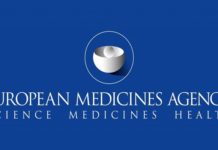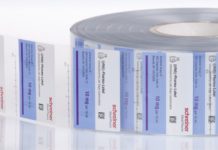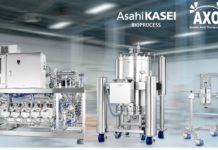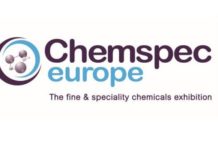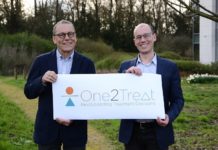New Analysis From Phase 3 Trial of Kyprolis® (Carfilzomib) Combination Treatment in Relapsed Multiple Myeloma Patients With Early Disease Progression
Phase 1/3 MASTERKEY-265 Study Abstracts Present Data on IMLYGIC® (Talimogene Laherparepvec) in Combination With Pembrolizumab in Patients With Unresected Stage IIIB-IV Melanoma
Amgen announced that new clinical data from across the oncology portfolio, including Kyprolis® (carfilzomib), IMLYGIC® (talimogene laherparepvec), Vectibix® (panitumumab) and Neulasta® (pegfilgrastim) will be presented at the 52nd Annual Meeting of the American Society of Clinical Oncology (ASCO) in Chicago, June 3-7, 2016.
“As a leader in patient-focused oncology research, Amgen is committed to translating innovative science into treatments that make a difference in the lives of people suffering from cancer,” said Sean E. Harper, M.D., executive vice president of Research and Development at Amgen. “The breadth and depth of data we’re presenting at ASCO demonstrates our commitment to finding solutions to some of the toughest cancers. We are thankful for our research partners who help us achieve this mission, and we look forward to sharing these results at ASCO.”
Amongst the Kyprolis abstracts to be presented at the meeting will be a new subgroup analysis from the Phase 3 ASPIRE trial which compared Kyprolis in combination with lenalidomide and dexamethasone versus lenalidomide and dexamethasone alone in relapsed multiple myeloma patients who had early disease progression following prior therapy (including transplant).
Presentations highlighting Kyprolis data include:
- Carfilzomib, Lenalidomide, and Dexamethasone (KRd) vs. Lenalidomide and Dexamethasone (Rd) in Patients with Relapsed Multiple Myeloma (RMM) and Early Progression During Prior Therapy: Secondary Analysis From the Phase 3 Study ASPIRE (NCT01080391)
- Abstract #8045, Poster, Monday, June 6 at 8 a.m. CDT in McCormick Place, Hall A
- Risk of Hypertension (HTN) and Malignant Hypertension (mHTN) in Patients Treated for Multiple Myeloma (MM)
- Abstract #8049, Poster, Monday, June 6 at 8 a.m. CDT in McCormick Place, Hall A
- Transitions Across Different Lines of Therapy in the Medicare-Enrolled Patient Population with Multiple Myeloma
- Abstract #8043, Poster, Monday, June 6 at 8 a.m. CDT in McCormick Place, Hall A
- Treatment Regimens and Duration of Lines of Therapy in Medicare-Enrolled Patients with Multiple Myeloma
- Abstract #8046, Poster, Monday, June 6 at 8 a.m. CDT in McCormick Place, Hall A
- Costs Associated With Treatment Induced Peripheral Neuropathy in Patients with Multiple Myeloma (MM)
- Abstract #8048, Poster, Monday, June 6 at 8 a.m. CDT in McCormick Place, Hall A
- Healthcare Costs Among Multiple Myeloma (MM) Patients (Pts) without Stem Cell Transplant (SCT)
- Abstract #8059, Poster, Monday, June 6 at 8 a.m. CDT in McCormick Place, Hall A
- Retrospective Study of Frequency and Cost of Multiple Myeloma (MM) Complications and Treatment (Tx) Related Adverse Events (AEs)
- Abstract #8060, Poster, Monday, June 6 at 8 a.m. CDT in McCormick Place, Hall A
- Economic Evaluation of Carfilzomib + Lenalidomide + Dexamethasone (KRd) vs. Lenalidomide + Dexamethasone (Rd) in Relapsed or Refractory Multiple Myeloma (R/RMM)
About Kyprolis® (carfilzomib)
Proteasomes play an important role in cell function and growth by breaking down proteins that are damaged or no longer needed.1 Kyprolis has been shown to block proteasomes, leading to an excessive build-up of proteins within cells.2 In some cells, Kyprolis can cause cell death, especially in myeloma cells because they are more likely to contain a higher amount of abnormal proteins.2 The irreversibility of Kyprolis’ binding has also been shown to offer a more sustained inhibition of the targeted enzymes.3
Kyprolis is approved in the U.S. for the following:
- In combination with dexamethasone or with lenalidomide plus dexamethasone for the treatment of patients with relapsed or refractory multiple myeloma who have received one to three lines of therapy.
- As a single agent for the treatment of patients with relapsed or refractory multiple myeloma who have received one or more lines of therapy.
Kyprolis is also approved in Argentina, Israel, Kuwait, Mexico, Thailand, Colombia, Korea, Canada and the European Union. Additional regulatory applications for Kyprolis are underway and have been submitted to health authorities worldwide.
Kyprolis is a product of Onyx Pharmaceuticals, Inc. Onyx Pharmaceuticals is a subsidiary of Amgen and holds development and commercialization rights to Kyprolis globally, excluding Japan.
About IMLYGIC™ (talimogene laherparepvec)
IMLYGIC is a genetically modified herpes simplex type 1 virus that is injected directly into tumors. IMLYGIC replicates inside tumor cells and produces GM-CSF, an immunostimulatory protein. IMLYGIC then causes the cell to rupture and die in a process called lysis. The rupture of the cancer cells causes the release of tumor-derived antigens, which together with virally derived GM-CSF may help to promote an anti-tumor immune response. However, the exact mechanism of action is unknown.
IMLYGIC is the first oncolytic viral therapy approved by the U.S. Food and Drug Administration (FDA) based on therapeutic benefit demonstrated in a pivotal study. IMLYGIC is a genetically modified oncolytic viral therapy indicated for the local treatment of unresectable cutaneous, subcutaneous, and nodal lesions in patients with melanoma recurrent after initial surgery. IMLYGIC has not been shown to improve overall survival or have an effect on visceral metastases.
About Neulasta® (pegfilgrastim)
Neulasta is indicated to decrease the incidence of infection, as manifested by febrile neutropenia, in patients with nonmyeloid malignancies receiving myelosuppressive anti-cancer drugs associated with a clinically significant incidence of febrile neutropenia. Neulasta is not indicated for the mobilization of peripheral blood progenitor cells for hematopoietic stem cell transplantation.
In a pivotal clinical trial, in patients with nonmyeloid malignancies undergoing myelosuppressive chemotherapy associated with a clinically significant incidence of febrile neutropenia, treatment with Neulasta was shown to significantly reduce the incidence of febrile neutropenia..
Neulasta is administered by manual injection and is also available via the Neulasta® OnproTM kit, which was approved by the FDA in 2014 and includes a specially designed, single-use prefilled syringe co-packaged with an on-body injector for Neulasta.
For more information about Neulasta, visit www.Neulasta.com and www.NeulastaHCP.com.
Capillary Leak Syndrome
Capillary leak syndrome has been reported after granulocyte colony‐stimulating factor (G‐CSF) administration, including Neulasta®, and is characterized by hypotension, hypoalbuminemia, edema, and hemoconcentration. Episodes vary in frequency, severity and may be life‐threatening if treatment is delayed. Patients who develop symptoms of capillary leak syndrome should be closely monitored and receive standard symptomatic treatment, which may include a need for intensive care.
Potential for Tumor Growth Stimulatory Effects on Malignant Cells
The granulocyte colony-stimulating factor (G-CSF) receptor, through which pegfilgrastim and filgrastim act, has been found on tumor cell lines. The possibility that pegfilgrastim acts as a growth factor for any tumor type, including myeloid malignancies and myelodysplasia, diseases for which pegfilgrastim is not approved, cannot be excluded.
The most common adverse reactions (≥ 5% difference in incidence) in placebo-controlled clinical trials are bone pain and pain in extremity.
Please see additional Neulasta® Safety Information, by visiting www.amgen.com/medpro/products.html.
About ABP 215
ABP 215 is being developed as a biosimilar to bevacizumab, which is approved in specific combinations in the U.S., EU and other regions for the treatment of patients with unresectable, locally advanced, recurrent or metastatic non-squamous NSCLC as well as metastatic carcinoma of the colon or rectum; metastatic renal cell carcinoma; and other region-specific indications.
About the Amgen and Allergan Collaboration
In December 2011, Amgen and Allergan plc. (then Watson Pharmaceuticals, Inc.) formed a collaboration to develop and commercialize, on a worldwide basis, four oncology antibody biosimilar medicines. This collaboration reflects the shared belief that the development and commercialization of biosimilar products will not follow a pure brand or generic model, and will require significant expertise, infrastructure, and investment to ensure safe, reliably supplied therapies for patients. Under the terms of the agreement, Amgen will assume primary responsibility for developing, manufacturing and initially commercializing the oncology antibody products.
About Amgen Biosimilars
Amgen Biosimilars is committed to building upon Amgen’s experience in the development and manufacturing of innovative human therapeutics to expand Amgen’s reach to patients suffering from serious illnesses. Biosimilars offer the potential to increase patient access to vital medicines, and Amgen is well positioned to leverage its 35 years of experience in biotechnology to create high-quality biosimilars and reliably supply them to patients worldwide.
For more information, visit www.amgenbiosimilars.com.
About Amgen
Amgen is committed to unlocking the potential of biology for patients suffering from serious illnesses by discovering, developing, manufacturing and delivering innovative human therapeutics. This approach begins by using tools like advanced human genetics to unravel the complexities of disease and understand the fundamentals of human biology.
Amgen focuses on areas of high unmet medical need and leverages its biologics expertise to strive for solutions that improve health outcomes and dramatically improve people’s lives. A biotechnology pioneer since 1980, Amgen has grown to be one of the world’s leading independent biotechnology companies, has reached millions of patients around the world and is developing a pipeline of medicines with breakaway potential.
For more information, visit www.amgen.com
About Amgen’s Commitment to Oncology
Amgen Oncology is committed to helping patients take on some of the toughest cancers, such as those that have been resistant to drugs, those that progress rapidly through the body and those where limited treatment options exist.Amgen’s supportive care treatments help patients combat certain side effects of strong chemotherapy, and our targeted medicines and immunotherapies focus on more than a dozen different malignancies, ranging from blood cancers to solid tumors. With decades of experience providing therapies for cancer patients, Amgen continues to grow its portfolio of innovative and biosimilar oncology medicines.
CONTACT: Amgen, Thousand Oaks
Kristen Davis, 805-447-3008 (Media)Kristen Neese, 805-313-8267 (Media)
Arvind Sood, 805-447-1060 (Investors)



